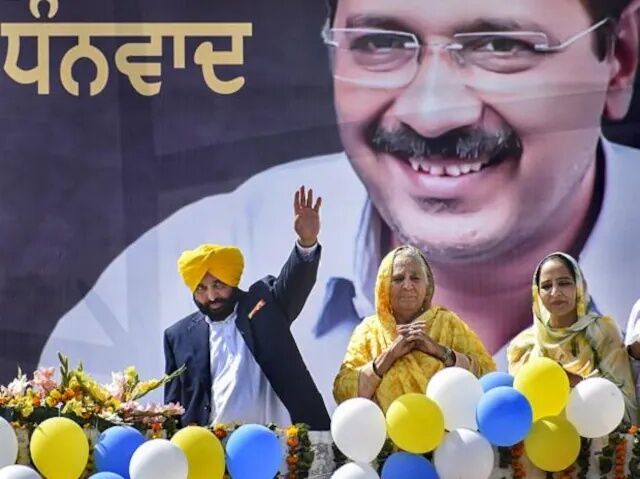A promising alternative?

AAP's landslide victory in Punjab is indeed promising for the party's prospects in the future, and political experts are not shying away from echoing Kejriwal's claim of being in the race of becoming a national alternative to the BJP. Of course, it appears to be a long shot from here but the chances cannot be ruled out. The dramatic acceptance for AAP among Punjab's electorate can be attributed to two kinds of factors — Punjab-specific issues and the issues with somewhat universal significance. As is known, the most important development in Punjab ahead of the assembly elections was farmers' unrest. Though the three farm laws were at the core of protest, the larger sentiment was against the establishment — both at state and the Centre. The Bharatiya Janata Party was certainly at the receiving end but, to the despair of Congress, the inaction of the party — both in response to farmers' protest and unfulfilled promises of 2017 polls — was also not well taken by people. But political inaction is not a new thing. Why does the Punjab electorate drift so drastically away from the Congress? Direct involvement of people in a year-long protest is no mean thing. A lot of time, energy, and money was invested in the farmers' protest — resulting in a sense of political activeness, not just awareness, among the people. People had paid the price and were not willing to hand over an easy bargain to the Congress — votes in exchange of verbal appeasement. To them, there was a city state in the neighbourhood that has been witnessing improvements on basic development parameters like health and education. But more importantly, there was the Kejriwal-led AAP that has shown considerable seriousness in improving Punjab along the same lines, accounting for people's trust. It won't be an exaggeration to say that farmers' protest had made people of Punjab realise that falling for sectarian calls was not an option to choose. AAP must be credited for catching this void in a timely manner and pouring in all the energy for over six months. As many prefer to call AAP a 'political start-up', the new-age party was nimble enough to sense a fertile market for the idea of governance it has been trying to sell over years. If Kejriwal succeeds in replicating the Delhi model of development in Punjab, it may encourage other states as well to choose AAP's 'alternative governance'. Among others who are in the race to fill the glaring gap left by the Congress, AAP places itself as distinct because its appeal is more universal than centred around regional sentiments. Furthermore, rather than just being responsive in countering the BJP, AAP has been trying to sell an alternative narrative over a decade and Punjab elections just offered it the right moment to do so. The first stumbling block for the AAP in becoming a national party will be crossing the threshold of having four states in its fold. While AAP is expected to contest in Gujarat and Himachal Pradesh assembly elections later this year, its prospect of victory is quite slim, especially in Gujrat where caste and community divides are very stark and the BJP is a brand. However, it will be interesting to see how it fares in the assembly elections of Karnataka, Rajasthan, Chhattisgarh, Telangana, Nagaland, Mizoram, Meghalaya, and Tripura in 2023. Notably, the party can look to go after Rajasthan and Chhattisgarh — other two Congress-ruled states — where communal divides are relatively feeble. While the AAP may face difficulty in facing the BJP upfront presently, it can at least gain greater ground in the BJP vs Congress states where the latter is consistently ceding ground to the former. Another important thing that is worth noticing is that though AAP has taken almost 10 years (which in itself is remarkable) to win its second state, its growth may increase in exponents from here. The reason behind this optimism is that AAP has an alternative agenda that can resonate at national level and every successive state in its fold will have a multiplier effect. The leadership of the party has shown both the hunger for power and far-sightedness to gain the same. Most of the voters tend to vote on rational ground — though their collective logic may have its own set of distinctions. The fact that the BJP has become such a formidable political force is not just because of the apparently instant Hindutva tirade it keeps chanting. It involves years and decades of catching the public pulse, and building upon that. AAP's success will depend upon its long-term vision, to which Punjab victory is but just a milestone — to be left behind a longer march. Prospects are promising but deliverance will account for more than half of the work to be done.



